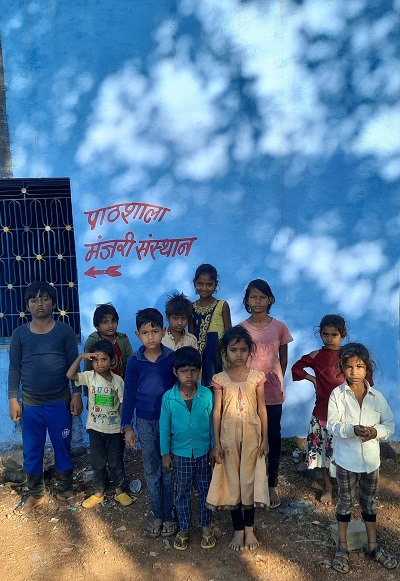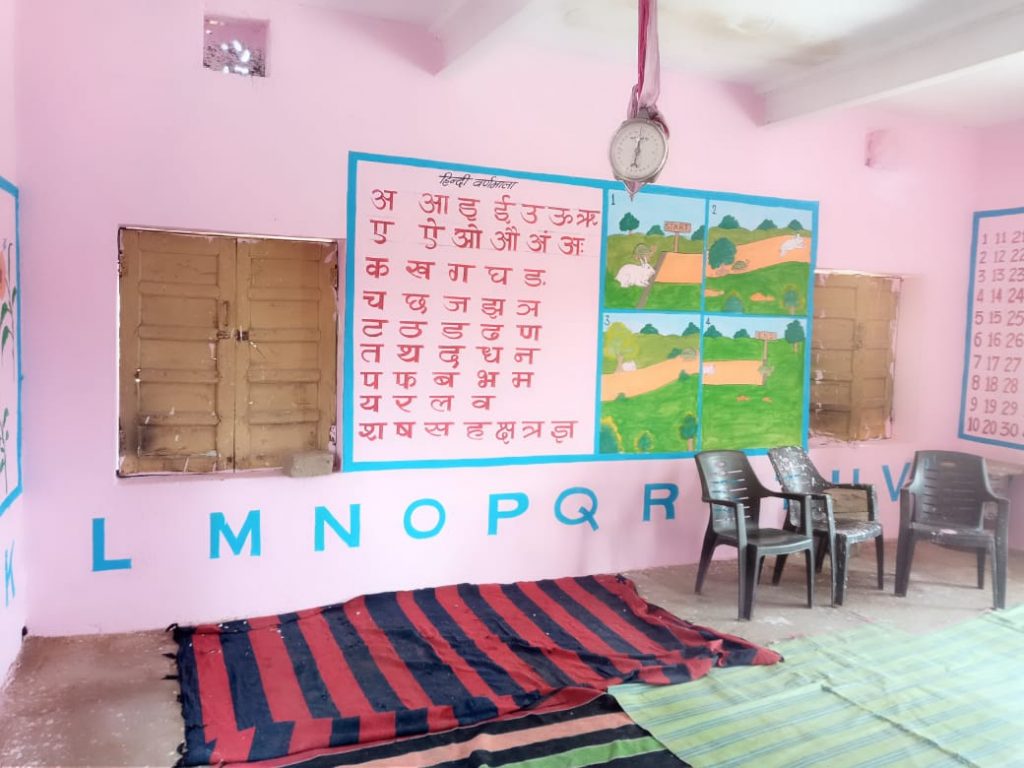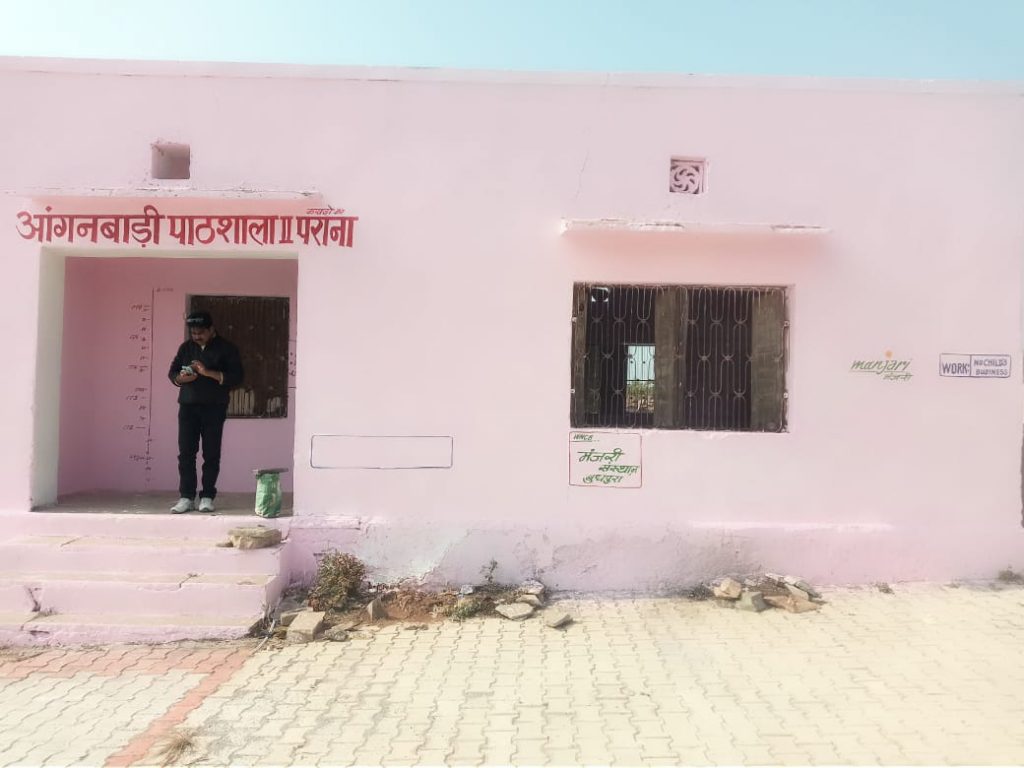Two years of disruption have taken their toll on education. New community spaces aim to help children catch up.

In Stemming the Return to Child Labour we explained the impact of long lockdowns on education, and reported how Manjari, the NGO that works in Budhpura and surrounding villages, has delivered educational resources to villages and workplaces to help fill the gap resulting from school closures.
At the beginning of 2022, schools were open for a time, but then closed again. The on/off availability of the classroom is very disruptive. Manjari’s approach has evolved during the various phases of Covid and the intention is to continue with the assistance provided, even if schools reopen permanently. There is much catching-up to do, if the children are to make up for the lost learning of the last two years.

To that end, three community spaces have been created, each in a different village. One is a dedicated anganwadi—an Early Childhood Centre. These centres, the first of which were established by the government over forty years ago, provide basic healthcare in rural villages, and generally offer contraceptive advice, nutritional supplements and education, as well as pre-school activities. An anganwadi is, essentially, a government responsibility. However, as Manjari’s Manish Singh explains, “Most are not appropriate to the needs of children far from habitation, so Manjari has provided support.”
Teachers have been brought in too. “And they are doing a proper job,” says Manish, who has experience of the sometimes erratic teaching methods in rural centres, “with lesson plans. We have minimum learning levels, and a daily diary of progress.”

There’s no doubt that the pandemic has had a huge effect, both on schooling and on the previous advances made in getting children into education. However, with the need to give more help to families in the surrounding areas, Manjari’s physical presence in villages has become more visible, which is a positive step in the journey to Child Labour Free Zones.
